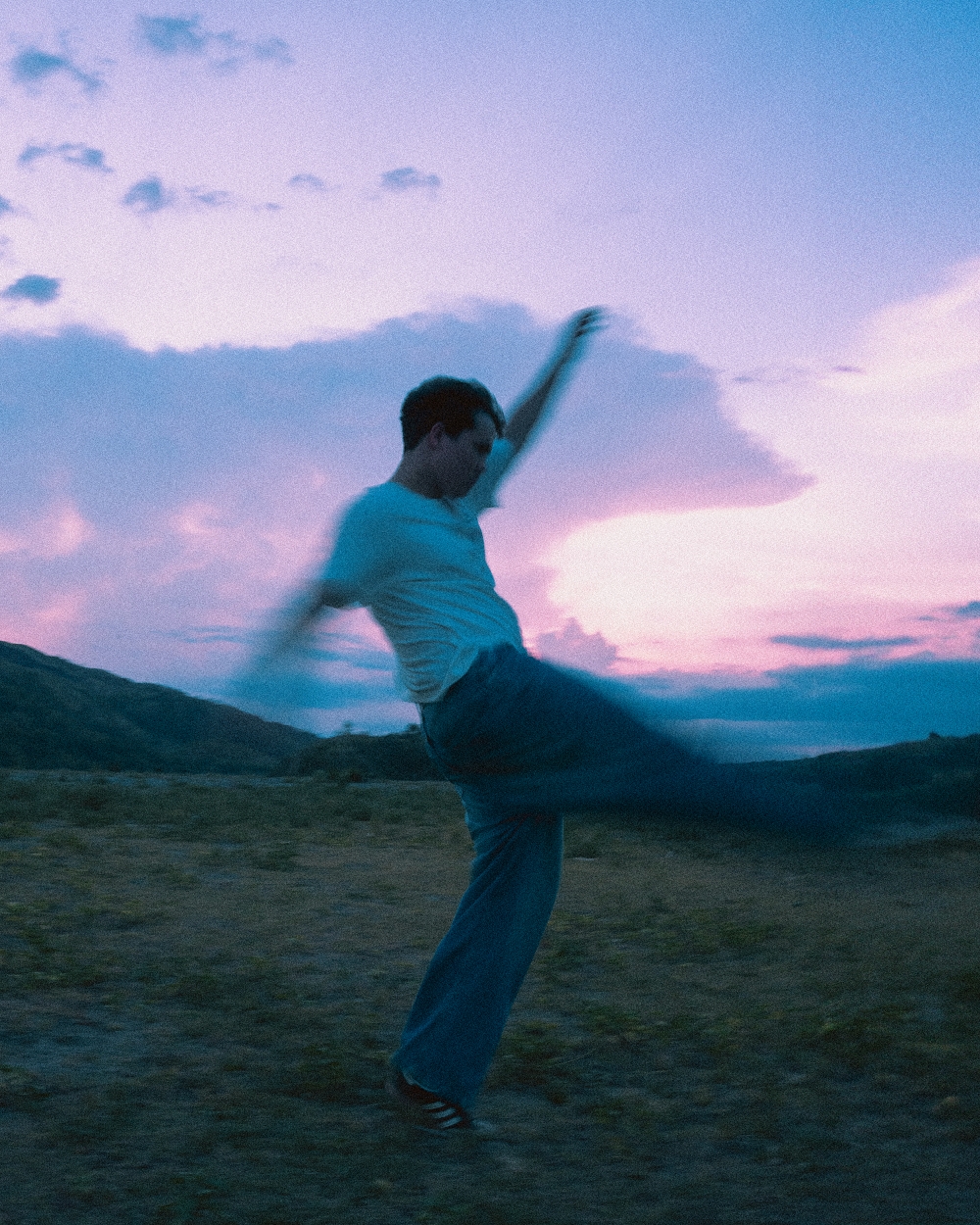Juan Karlos believes in honoring your emotions
I believe your embarrassing, rebellious phase as a teenager is a crucial developmental stage, like how babies learn to babble before they figure out how to speak. I often wonder about artists who grow up in the public eye: How do you go through a period where you’re supposed to make mistakes when your life is open to public scrutiny?
For Juan Karlos, who rose to fame in a reality singing competition at 13 years old, this rebellious teenage phase led him to become one of the most sought-after musicians in the country.

“I was being molded and slowly turned into this thing I didn’t necessarily want to be, and I was looking for some legitimacy with the term ‘musician’ because I didn’t feel like one,” he recalls. After finishing third in The Voice Kids, Juan Karlos was signed to Star Magic, where he released his first two albums and starred in a slew of TV dramas.
“It was also a mix of people saying things like, ‘Oh you shouldn’t do this.’ Pero syempre, as a rebellious teenager, ‘I’m gonna do it,’” he jokes. “I did things I wasn’t supposed to do”—pointing to his tattoos—“and tried to take the path of these musicians I looked up to. I came from sold-out mall shows to dingy, smelly gigs in bars. It was a decision I made even though I didn’t have the privilege of failing because I was responsible for my family.”
Juan Karlos, then 17, formed a band named after him and released Buwan. It took over radio and streaming, winning Song of the Year at the Myx Music Awards and an Awit Award for People’s Voice Favorite Song. It was the beginning of Juan Karlos as we know him now.
He’s become known for raw storytelling and oft-viral live performances. His singles often turn explosive at the last chorus, which, paired with his commanding vocals, create a cathartic, take-us-to-church moment. Breakup anthem Ere, the first single off his latest album “Sad Songs and Bullshit,” is perhaps the best example of this: The writing is conversational but brutally honest, and the production parallels the bubbling of his rage, heartbreak, and frustration. It ends with a powerful release.
Sad Songs and Bulls**t is divided into two parts, released almost a year apart. Juan Karlos admits the division is due to not having enough time to finish all the songs in one go, being busy with projects like TV series Senior High. “Sobrang naka-move on na ‘ko sa lahat-lahat, tapos ‘yung album, hindi.”
Yet, he says it wasn’t necessarily weird to return to that emotional place he had moved on from. “It’s not a new thing for me. I act, which I also love doing. You can have a crying scene, but that doesn’t mean you’re sad when the director says ‘cut.’”

It was interesting to discover that there is still some level of performance to raw, authentic art, like singing songs about your honest feelings when you no longer feel that way. It reminds me of the show Fleabag, where the main character breaks the fourth wall as a way to package her misery for public consumption and therefore separate herself from it. I ask if he’s seen the show and has ever felt the same. “In acting, where you’re playing characters, a lot of people ask, ‘Do you lose yourself? What about your real self?’ But I don’t necessarily believe in ‘real self.’ I feel like we, as humans, just naturally have different modes or identities.”
“We evolved into these creatures who wear different hats for different situations, like wearing certain outfits for different events,” he continues, as if straight out of sociologist Erving Goffman’s work on self-presentation and public life.
He describes a quick ritual he does to ensure he doesn’t take home a character he plays: He breathes out to the palm of his hand, folds it like a piece of paper, and puts it into his pocket. “With music, it’s different because I’m not playing a character, but the thought process is similar. Imagine all these songs are like cards you can put in a card slot. Once you put a card in, you’re brought back to a specific memory.”
“Every time I perform, it doesn’t mean I’m going through (the experience) again, but the card that gets put into the card slot brings me back to what I was feeling when I was making the song. That memory—it’s just a picture you took, and it stays the same no matter what changes.” In other words, it’s still the “real” you, just different past variations of it.

It’s a meaningful lesson—you can forgive and move on, but that doesn’t mean the experience you went through and the emotions you felt should be erased from your personal history. I often refer to something American novelist Mary Gaitskill said when thinking about personal writing: “Whatever the suffering is, it’s not to be endured, for God’s sake, not felt and never, ever accepted. It’s to be triumphed over. And because some things cannot be triumphed over unless they are first accepted and endured, because, indeed, some things cannot be triumphed over at all, the ‘story’ must be told again and again in endless pursuit of a happy ending.”
Many writers feel we have to triumph over our suffering by making something out of it; because what would it be for if not our work? But, in the vein of Gaitskill and now Juan Karlos, what if we simply went through it? What if it’s not something we constantly have to carry, but cards we can revisit and then switch out after?
“A lot of people mention things like ‘future of OPM’ or ‘legend’ (when talking about me), and that’s nice, but I don’t see myself in that light because I’m just another f**king guy making songs,” Juan Karlos says. “I’m just your friendly neighbor talking about his feelings.”
***
“Sad Songs and Bulls**t Part 2” by Juan Karlos is out now on all major streaming platforms via Island Records Philippines.


